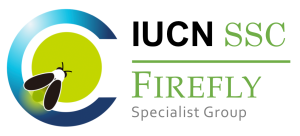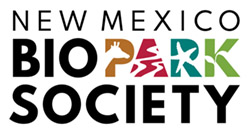Would you like to learn more about how to participate in the Firefly Atlas? In addition to our Participant Handbook, we have created a series of training videos to help you learn more about the Atlas and how to identify the fireflies in your area. At a minimum, we ask that all Firefly Atlas participants view the Firefly Atlas training video. For a deeper dive into the world of firefly taxonomy and identification, please check out the North American Firefly ID Course series, led by Dr. Oliver Keller.
Firefly Atlas Training: How to Do a Firefly Survey
The Firefly Atlas is a collaborative project with the goal of mapping and tracking the firefly species of the US and Canada. Community scientists, conservation professionals, and land managers are all invited to conduct surveys and contribute data. This training video will teach you how to survey fireflies using the Firefly Atlas protocol. Learn how to plan your survey; fill out the data sheet; record firefly flash pattern details; net and photograph fireflies; and enter your data online.
North American Firefly ID Course
In 2023, the Xerces Society partnered with firefly taxonomist Dr. Oliver Keller to provide a 3-day training course on US and Canadian firefly identification. This course was recorded and made available on our YouTube channel. You can access the individual course modules below. Throughout the course, you will hear reference to a folder of relevant literature and species keys. This folder is available here.
(42 min) Welcome to the North American Firefly ID course! In this module, we introduce you to the world of fireflies, share some resources to learn more, and briefly discuss the firefly life cycle. We then provide an overview of basic firefly morphology, including key terms and definitions that will be useful to know as you learn to identify fireflies.
(30 min) In this module, you will gain a better understanding of the current taxonomic uncertainties in North American firefly taxonomy. We also review what type specimens are and their significance, and discuss the current and potential role of DNA barcoding in firefly taxonomy, species delineation, and identification.
(55 min) This module covers the ~20 firefly genera found in the US and Canada. Learn to confidently identify adult North American fireflies to genus based on morphology. We share how many species of each genus are found in the US and Canada, some defining features of each, and important keys and field guides to help with identification.
(28 min) Some firefly species are fairly widespread and common. Learn more about 6 of these species, including where they are found, what habitats they’re associated with, when they’re active, and some defining features that can help with their identification.
(49 min) Learn how to photograph and examine fireflies for the highest level of non-lethal ID. We also introduce firefly flash patterns, review flash pattern terminology, and discuss how to describe a firefly flash pattern based on videos or long-exposure photographs.
(27 min) Learn how to collect and preserve fireflies for future research, including dry pinning vs wet preservation. In this module, we also review important safety precautions and regulations, and what equipment you need to conduct surveys and curate your specimens.
(28 min) In this module, we take a deeper dive into morphological ID techniques, focusing primarily on features and dissection of the male genitalia (aedeagus). You will learn what is involved in dissection, aedeagus terminology, and what to look for in aedeagi when identifying species.
(45 min) In this module, you will learn more about 7 regional species of conservation concern in the southeastern US, including their morphology, life history, distribution, and habitat associations. This module is specifically tailored to help participants in the Xerces Society’s Firefly Atlas learn more about the project’s focal species and how to conduct surveys for them.
(20 min) In this module, you will learn more about 4 regional species of conservation concern in the Mid-Atlantic US, including their morphology, life history, distribution, and habitat associations. This module is specifically tailored to help participants in the Xerces Society’s Firefly Atlas learn more about the project’s focal species and how to conduct surveys for them.
(20 min) In this module, you will learn more about 4 regional species of conservation concern in the southwestern US, including their morphology, life history, distribution, and habitat associations. This module is specifically tailored to help participants in the Xerces Society’s Firefly Atlas learn more about the project’s focal species and how to conduct surveys for them.



